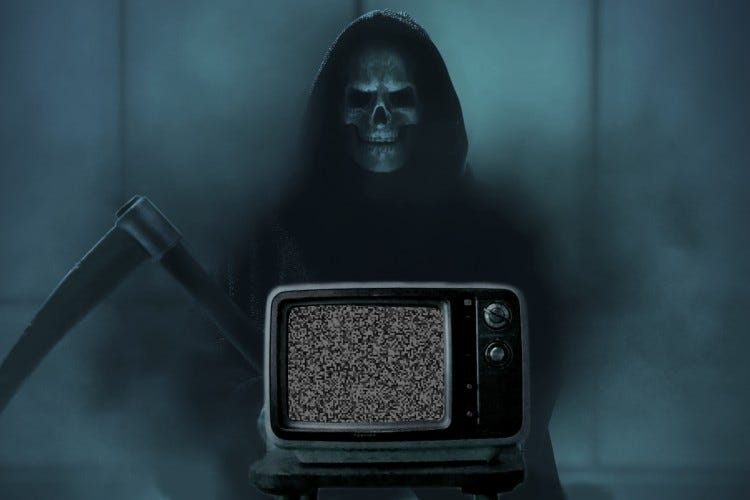Let’s Not Tell the "Death of Late Night TV" Story Without Mentioning Our Weird Obsession With Race and Gender
If we’re gonna do this autopsy, let's actually do it

The end of The Late Show with Stephen Colbert has led to a flurry of stories about the possible end of late night TV as we know it. It looks like a genre that’s older than velcro and the polio vaccine1 might be on its last legs. Most Americans can’t remember a time when we weren’t lulled to sleep by an affable guy in suit making pleasant japes, getting peed on by wildlife, and somehow persuading movie stars to gab about their latest film. Unless that time is “right now”, because nobody watches late night TV anymore.
To me, this is a tragedy. Late night was my obsession and then eventually my job; I view the death of the late night genre much the same way that Vladimir Putin views the dissolution of the Soviet Union, in my eyes it’s an abject catastrophe that I may never get over. And I’d like to think that I won’t wage a series of brutal wars in an attempt to restore the old order, but I make no promises. A thing that brought me enormous joy and put drugs up my nose food on my table for years is going extinct. It really, really sucks.
The journalists brought in to examine late night TV’s corpse mostly tell the same story: Streaming changed how people watch TV, the internet altered revenue streams, and late night couldn’t adapt to those changes. The savvier accounts also mention that late night shows were basically zoos for movie stars: You could see a Will Smith or a Sandra Bullock up close. Of course, these days, that virtually everything a late night TV show did is done better through other mediums. I find this story of late night’s demise to be basically incontrovertible; and I don’t know of anyone in the business who disagrees with its broad strokes. In the Museum Of Things That Got Piledrived By The Information Age, late night TV will have a prominent spot in between film cameras and teenagers watching scrambled porn.
So: The story that’s being told about why late night died is true. But in my opinion, it’s not the whole story. I’m wary of accounts that absolve the field of any responsibility, because while it’s true that technology and trends changed things…have you seen these fucking shows lately? Why nobody wants to watch this crap is not exactly a “how did they build Stonehenge?”-level mystery to me. Acknowledging that I was absolutely complicit in all of the trends that I think got out of hand — my argument here is not “they suck” but rather “we suck” — I think that we, the makers of late night TV, should be introspective. We made choices that look pretty bad now that we’re standing over our genre’s rotting corpse. And the choice I want to talk about today is the one that’s conspicuously absent from most accounts of late night’s demise: The decision to make race, gender, and sexual orientation a major factor in hiring and promotions.


